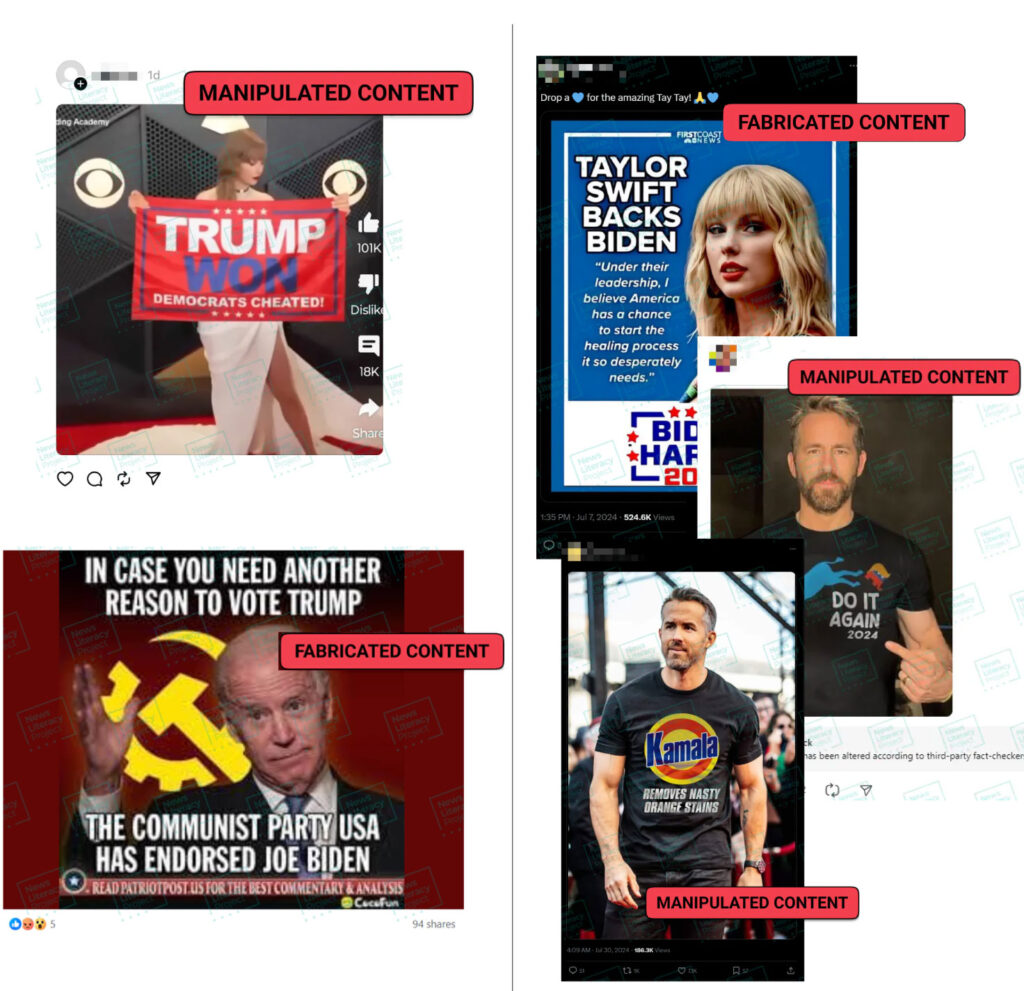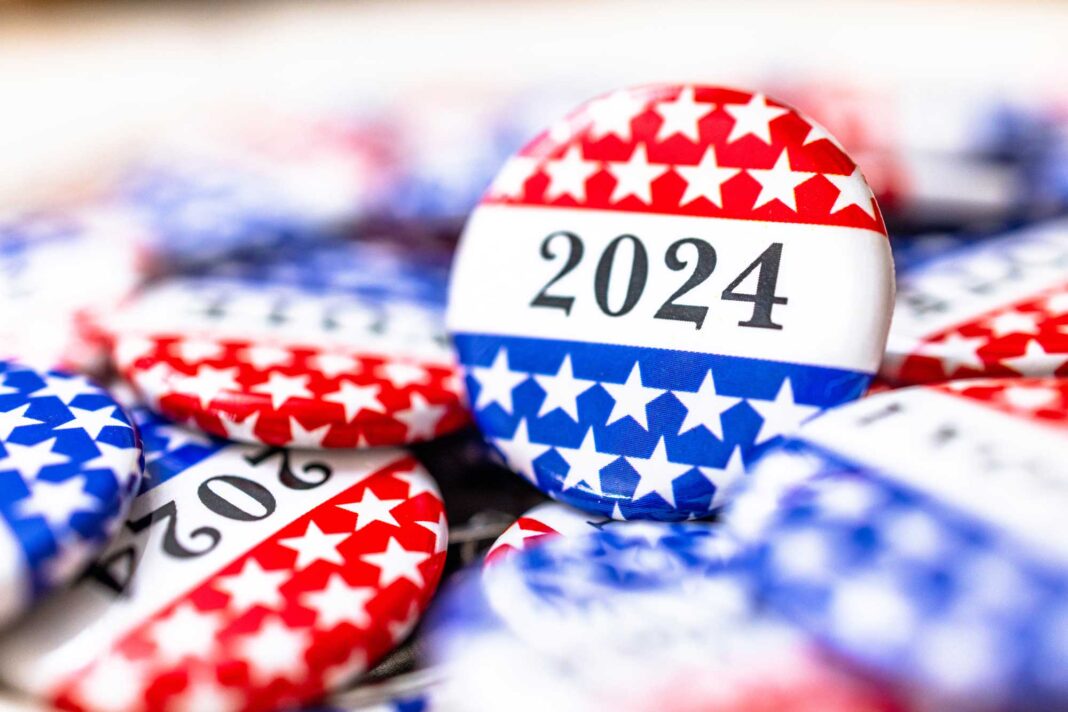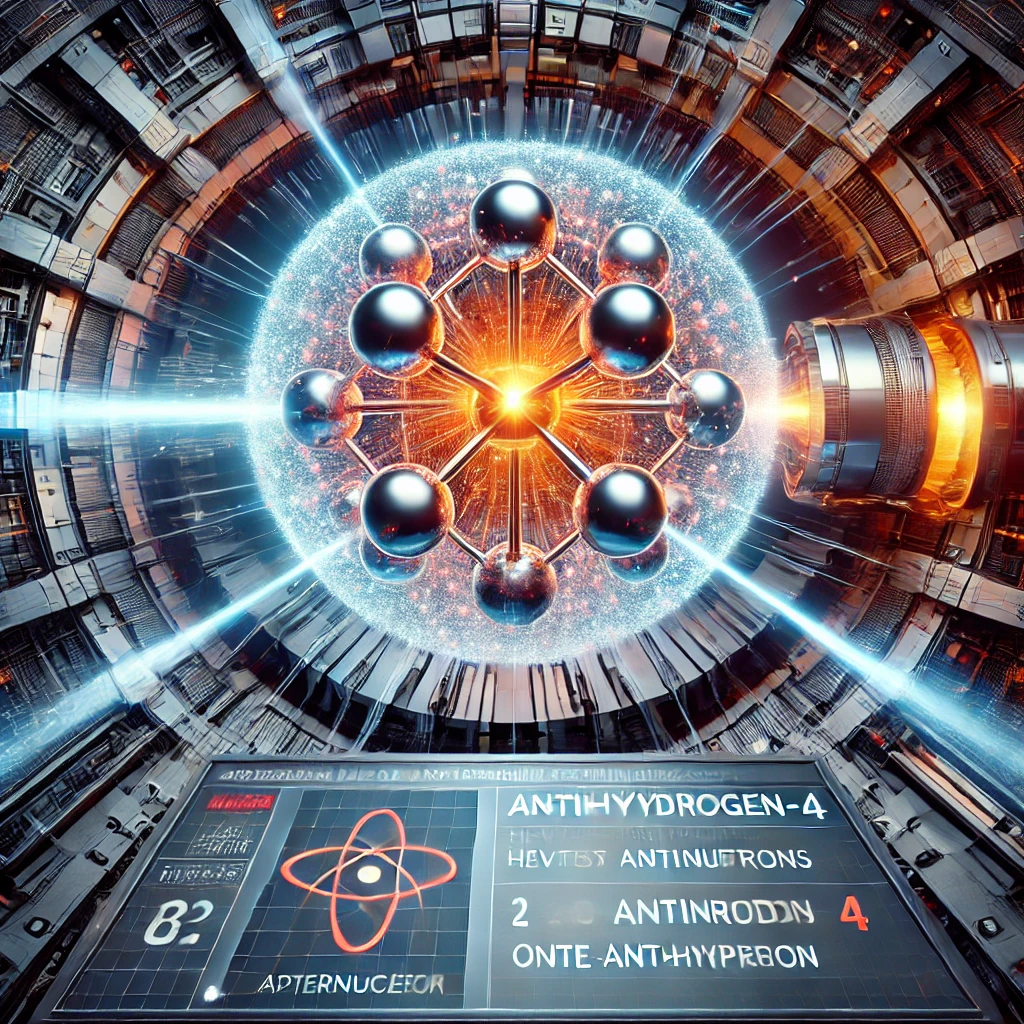As the 2024 election approaches, fake celebrity endorsements have become a powerful tool in the ongoing battle over misinformation. From doctored images to AI-generated content, these deceptive tactics are causing widespread confusion among voters. Taylor Swift didn’t endorse former President Donald Trump, Ryan Reynolds wasn’t spotted in a pro-Kamala Harris shirt, and the Communist Party USA never supported President Joe Biden’s campaign. Yet, these and other false claims are spreading rapidly across social media platforms, complicating the electoral landscape.
AI-Generated Deceptions in the 2024 Election
A recent incident highlights the dangers of these tactics. Last weekend, former President Trump shared a post on his Truth Social platform featuring AI-generated images that falsely depicted Swift fans, known as “Swifties,” endorsing his campaign. In response to the fabricated endorsement, Trump wrote, “I accept!” The images, including one of Swift in an “Uncle Sam” outfit, were blatantly manipulated. However, another image of a young woman at a rally seemed authentic, demonstrating how AI can blur the lines between truth and fiction.
Lucas Hansen, co-founder of CivAI, a nonprofit dedicated to raising awareness about AI’s risks, pointed out the telltale signs of AI-generated images in the post. The images appeared overly airbrushed, with high-camera quality and “heavy bokeh and background blurring,” all common traits of AI-created content. Hansen’s analysis underscores the growing challenge of distinguishing between real and fake imagery in an era where AI technology is increasingly sophisticated.
The News Literacy Project’s Role in Combatting Misinformation
To address the rise of election-related disinformation, the News Literacy Project, a nonpartisan educational organization, launched a comprehensive database last Thursday. This new resource tracks more than 550 unique instances of election-related misinformation, categorizing them into conspiracy theories, lies about candidates’ policies, and fake endorsements. Although the database doesn’t measure how often these false claims are shared, its bulk analysis approach offers a broader perspective on the misinformation landscape.
The database reveals that roughly 1 in 10 viral posts analyzed contained fake celebrity endorsements. Celebrities such as NFL quarterback Aaron Rodgers, actor Morgan Freeman, musician Bruce Springsteen, and former First Lady Michelle Obama have been falsely invoked in these posts, which have collectively garnered over 10 million views. The News Literacy Project’s initiative is a critical step in raising public awareness about these misleading narratives that could undermine democratic processes.

Social Media Platforms and the Spread of Disinformation
The spread of fake endorsements has been exacerbated by the changing policies of major social media platforms. On X (formerly known as Twitter), Elon Musk’s acquisition led to significant reductions in the platform’s in-house teams responsible for curbing election disinformation. The introduction of Grok, an AI-powered chatbot on X, has further complicated the situation. Grok has been criticized for spreading false information, including misleading claims about Kamala Harris’ eligibility for the 2024 election. With Grok now capable of generating AI-created images from text prompts, a new wave of fake content has flooded the platform, further distorting the political landscape.
Hansen warns that Grok could become a primary source of these misleading images due to its high-quality outputs and low refusal rate. The bot’s ability to create convincing images of “Swifties for Trump” closely mirrors the ones Trump shared, highlighting the ease with which disinformation can be generated and disseminated.
Other social media giants, such as Meta (which owns Facebook and Instagram), have also reduced their election integrity teams, raising concerns about the future of online political discourse. Although Meta has introduced measures requiring political advertisers to disclose the use of AI in their content, the effectiveness of these initiatives remains to be seen.
The Impact of Fake Celebrity Endorsements on Voters
Despite efforts to label AI-generated images and debunk viral lies, the sheer volume of fabricated material circulating online can still have a lasting impact on public perception. According to Peter Adams, the News Literacy Project’s senior vice president for research, even if users recognize a fake endorsement as false, repeated exposure to such content can still influence their views. The continuous stream of exaggerated claims about a candidate’s popularity can shape voters’ opinions, contributing to an increasingly chaotic and misleading information environment.
While AI has facilitated the creation of many fake endorsements, traditional methods like rudimentary photoshopping continue to play a significant role in spreading political disinformation. Adams notes that these older techniques remain effective and, for now, more cost-efficient than AI, underscoring the persistent challenge of combating election-related misinformation.
Conclusion: Vigilance in the Face of Misinformation
As the 2024 election draws nearer, the spread of fake celebrity endorsements and other forms of disinformation will likely intensify. Voters must remain vigilant and skeptical of sensational claims, especially those involving high-profile figures. By understanding the tactics used to deceive the public, we can better navigate the complex media landscape and protect the integrity of our democratic processes.
- News Literacy Project (https://www.newslit.org/)
- CivAI (https://www.civai.org/)
- CNN Report on Meta’s Election Integrity (https://www.cnn.com/meta-election-integrity)











